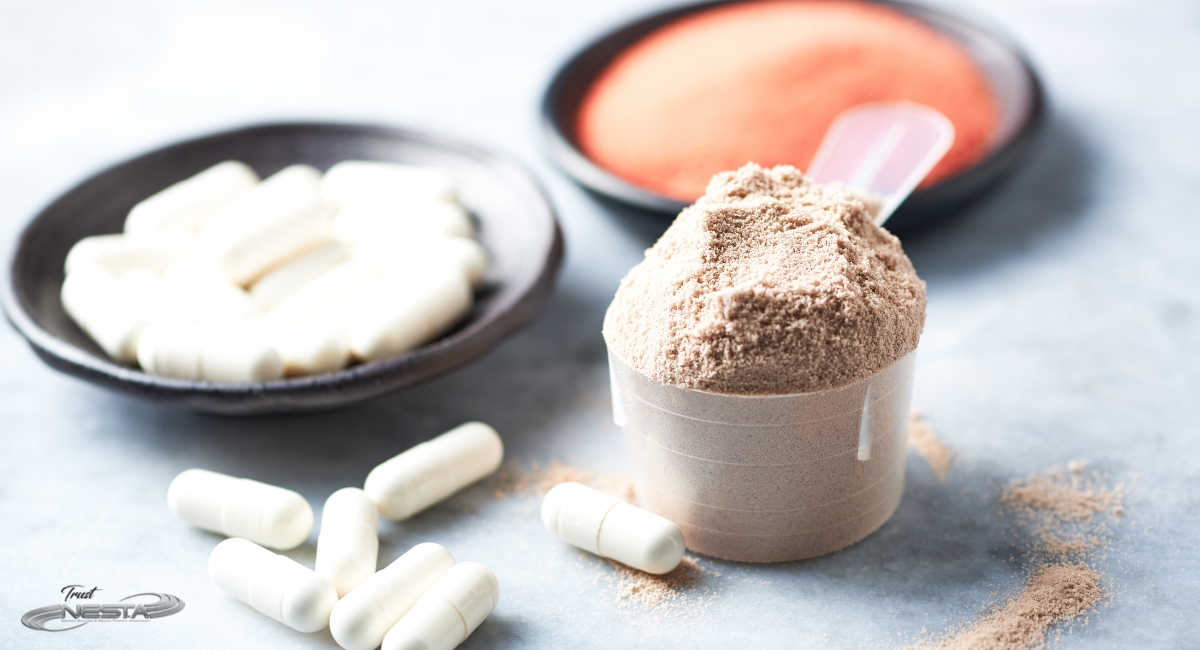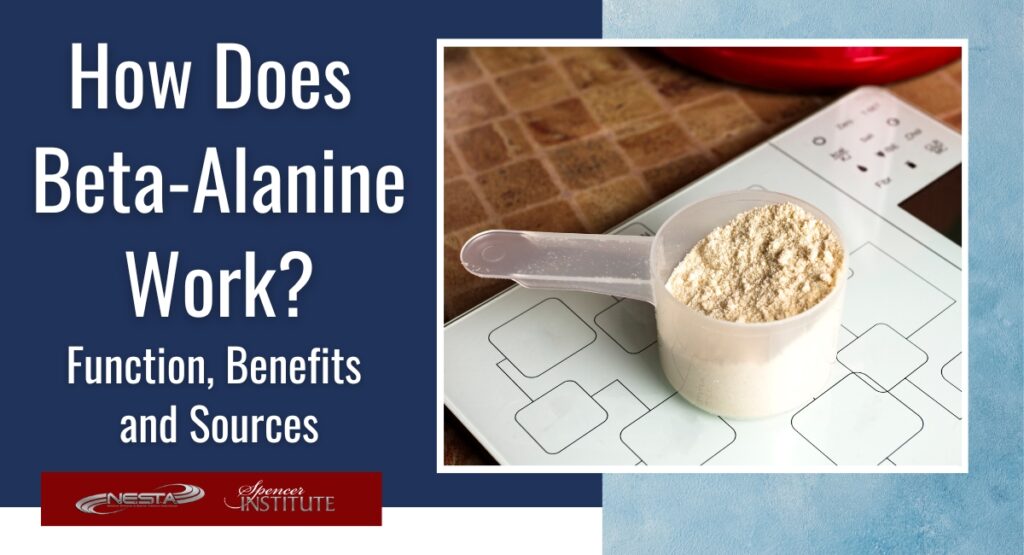
Are Beta-Alanine Sports Supplements Effective for Fitness and Sports Performance?
Beta-Alanine supplements have garnered interest over the last several years as several research investigations have linked their use to increases in performance.
What is Beta-Alanine?
Beta-Alanine is the ‘beta’ form of the amino acid, alanine, that muscle cells utilize to form carnosine. Its performance-enhancing potential appears to be linked to its relationship to carnosine. Carnosine is one of the more effective buffering agents in skeletal muscle and Beta-alanine supplementation appears to increase intramuscular carnosine content.
Is Taking Beta-Alanine Necessary?
In muscle tissue, carnosine works as a buffer to reduce acid and delay the onset of fatigue. Theoretically, this ability to buffer acids can lead to performance benefits.
Common Uses for Beta-Alanine:
- Improve athletic performance
- Delay fatigue
- Reduce time to exhaustion
- Increase exercise capacity
Is Beta-Alanine Worth Taking?
Since it appears that the “action” with Beta-alanine is its ability to form carnosine, it’s important to first examine the data and dosages needed to do so.
A study by Harris and his Team supplemented subjects with 3.2 or 6.4 g of Beta-alanine over 4 weeks, divided into 800 mg doses 4 times/day for the 3.2 g dose and 800 mg, 8 times/day for the 6.4 g dose. Both doses of the supplement significantly increased carnosine levels, but the 6.4 g dose was more effective at increasing levels.
Stout and Colleagues showed that 28 days of Beta-alanine (6.4 g, divided into 4 equal doses of 1.6 g for 6 days, then 3.2g for the remaining 22 days) may delay the onset of neuromuscular fatigue in untrained subjects.
Beta-alanine supplementation increases intramuscular carnosine levels.
Carnosine acts as a strong buffer, which improves physical performance.
The most promising data using Beta-alanine supplements are in short-term, high-intensity activities lasting more than 60 seconds.
Most data have used 3-6.4 grams of Beta-alanine/day.
In another study, subjects performed a short time trial and 30-second sprint, followed by a 110-minute simulated cycling race pre- and post-supplementation. The subjects received 2.4 g of Beta-alanine/day for 8 weeks between testing periods. The subjects in the Beta-alanine group significantly increased peak power output by 11.4% and mean power output by 5%. Both findings were statistically significant demonstrating 2.4 g/ day of Beta-alanine supplementation can enhance sprint performance.
However, not all studies have shown benefits. Studies using maximal strength double-blind, placebo-controlled performance as the outcome or those looking at aerobic power don’t show promise.
In one study, Derave and colleagues measured exercise performance and carnosine levels in 15 males longer than 10 weeks. One study using a high, acute dose of Beta-alanine resulted in symptoms of paresthesia, which disappeared within 1 hour. Others have noted dose-dependent tingling in the scalp and extremities. This seems to be reduced.
Very simply, carnosine acts as a buffering agent. Beta-alanine increases carnosine. Since the potential benefit appears to come from the ability to act as a buffering agent, exercise protocols that don’t elicit an increase in acidosis that could benefit from buffering don’t show a positive effect.
The ergogenic effects of buffering agents, like Beta-alanine, are more apparent when the high-intensity exercise activity lasts longer than 60 seconds or multiple bouts of high-intensity, short-duration exercises are performed.
Beta-Alanine Supplementation Guidelines
Most protocols suggest a total of 3 to 6.4 grams per day for 4 to 6 weeks, divided throughout the day, to reduce any potential side effects.
Safety, Side Effects, and Toxicity: Short-term use (up to 10 weeks) of beta-alanine supplements appear to be safe. No studies to date have evaluated its use for or prevented in most by taking lower doses, evenly divided throughout the day.
Conclusions Based on Available Data: Apparently effective during high-intensity exercise activity lasting longer than 60 seconds or multiple bouts of high-intensity, short-duration exercises.
Where Can I Learn More?
If this topic interests you, be sure to click over to learn about training, certification, and a career as a Certified Sports Nutrition Specialist.
The NESTA Sports Nutrition Specialist course is designed for personal fitness trainers, strength coaches, and nutrition experts who want to learn cutting-edge techniques for increasing sports performance, reducing recovery time, and enhancing the overall well-being of your clients and athletes.
If you want to help clients with food, diet, weight management and improving the results of their fitness routines, the Fitness Nutrition Coach course is for you. You will learn about optimal nutrition, including proven techniques for increasing energy, optimal health and decreased dependence on medications. Instantly increase your job and career opportunities with this popular professional credential.
You can become a Certified Personal Fitness Chef and expand your current personal chef business, or add a new profit center for your fitness or wellness business. Many personal chefs cook and coach people in groups to help more people and earn more money per hour. Some chefs provide weekly meal prep service for health-minded customers and athletes.
Check out what it takes to start a career in personal fitness training. This is your most affordable and fastest way to become a highly qualified personal trainer.
NESTA coaching programs are open to anyone with a desire to learn and help others. There are no prerequisites.
That’s it for now.
Take action!
PS: Click here to see many helpful business/career resources






